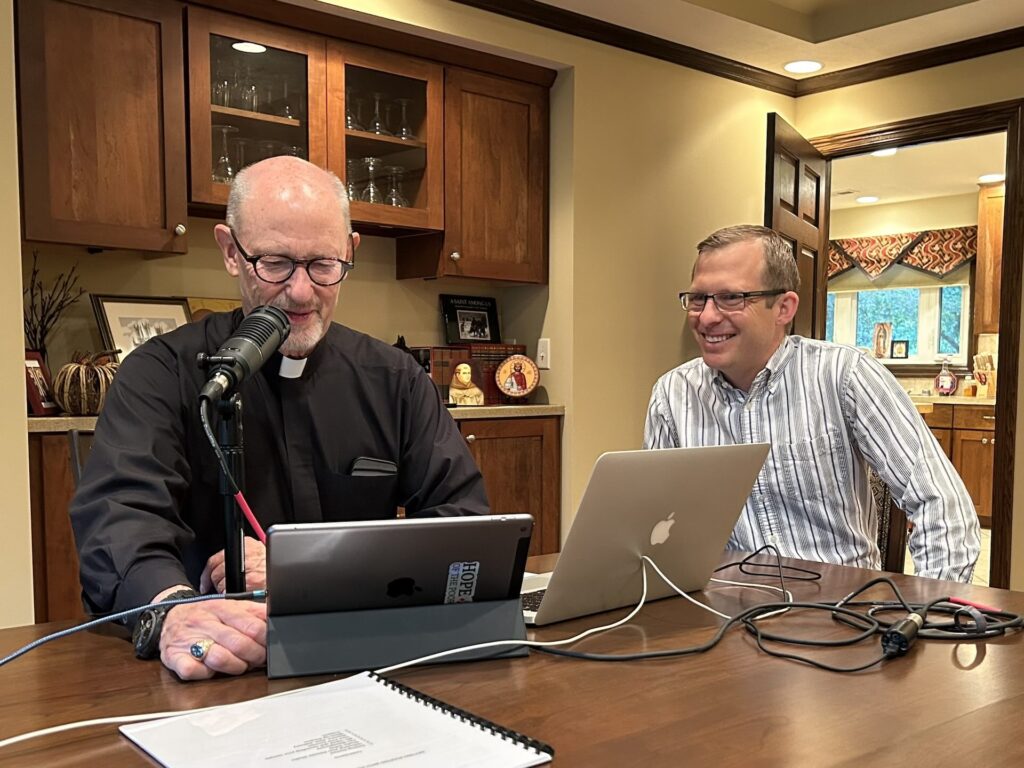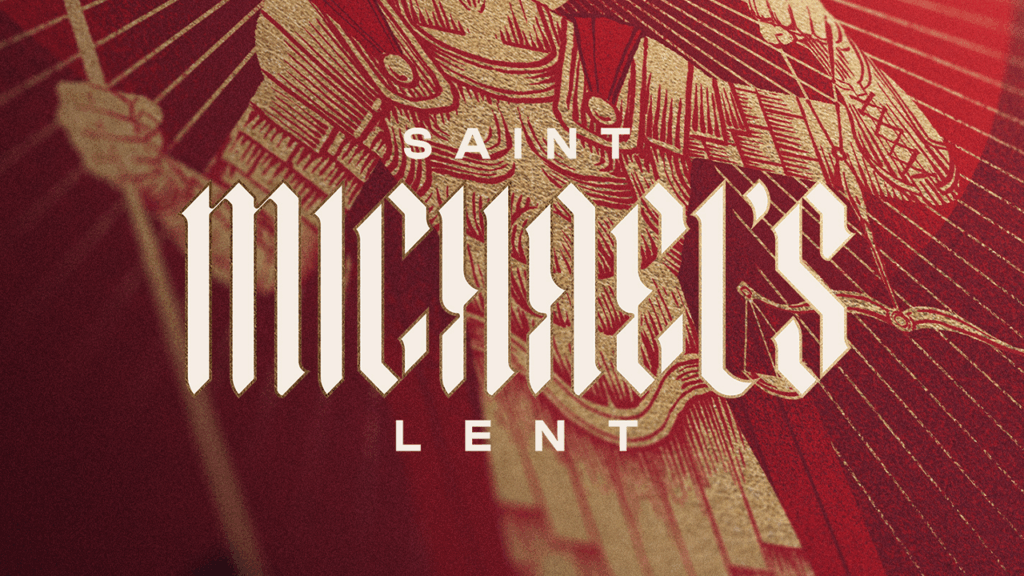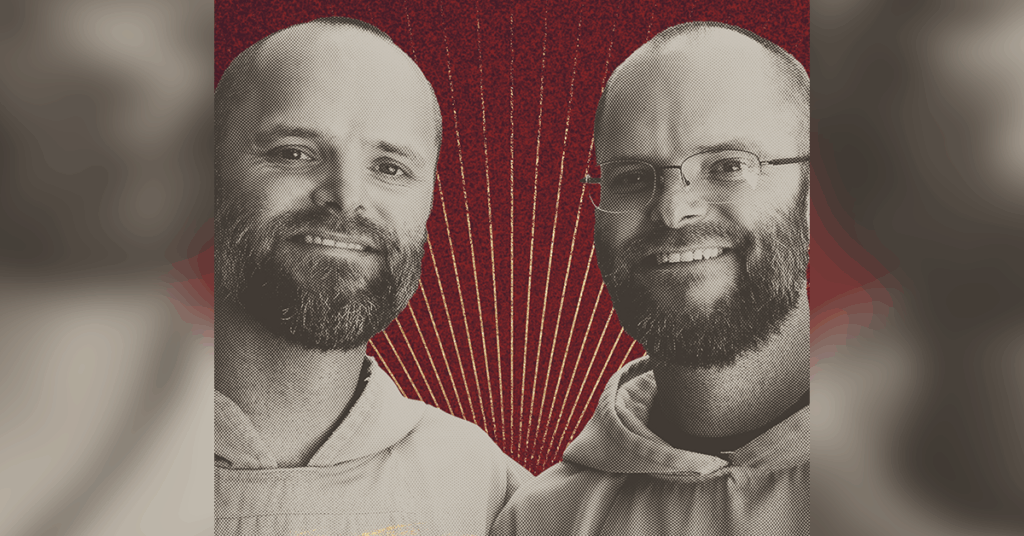And there was a question about baptism where you have a Catholic father and a Protestant mother. And the mother wants to delay baptism until later in life and let the child choose. What advice would you have in that case?
Yeah. In that case, I would say absolutely not, right? The longer that child is unbaptized, the longer he belongs to the kingdom of darkness.
So when we are conceived inside our mother’s womb, we belong to the devil. We sure don’t belong to God. And we sure as heck don’t belong to mom and dad, right? So this is . . . our birthright was lost by our primordial father in this life, Adam. It was lost by Adam. And so he forfeited the right that he was given to have dominion over the earth to the serpent, to God’s enemy.
And so this is why one of the titles of the devil is the prince of this world. And this is why, for example, within the Lucan temptations of the desert and the Lord in Luke, it’s the second temptation in Matthew. It’s the third temptation. So the order is a little bit reversed or a little bit different in each one, but nevertheless, the devil shows Christ, all the kingdoms of the earth in their glory, and he says to him, all of these I will give you. In other words, he shows him the entire human race. I will give all of these to you if you just bow down and worship me, because, and this is the part that Luke adds that Matthew misses, they have been given to me.
Now, what the Lord doesn’t say at that point is just as important as what he does say. He doesn’t call the devil a liar. Elsewhere, he calls the devil a liar, and in fact, he defines him. He says, the devil is a liar and the father of lies. And our Lord continues, when the devil lies, he is only acting according to his nature because, and then he repeats again, he is a liar.
And the father of lies, right? So in this context, the Lord does not call the devil a liar because the devil wasn’t lying. He really can’t. He really has jurisdiction over the world and everyone within it. And so he can choose to turn everyone over, his dominion over everyone over to Christ.
Now Christ has supreme authority because he’s God, right? And God has always supreme authority, but God has laid a path, he’s laid a track down with rules and he’s created the universe in a certain way where there’s a moral dimension to the universe and there are moral rules. And those rules have to be followed.
Now, the Lord can usurp them at any time he wants. He doesn’t have to follow those rules. Those are the rules of the world. But my point is that the devil really has a jurisdiction over us. And when we’re unbaptized, he owns us. He really owns us. This is why if somebody dies, if an infant dies prior to being baptized, the church does not and cannot offer a Christian funeral to that child, right?
Which is horrifically sad. We offer a mass of mercy. We offer a mass for a child but it’s, the prayers are different, right? So the innate Christian identity, which is referred to in a mass and which buttresses the prayers of the mass, they’re all premised all of those prayers on the fact that this person for the funeral mass of a Christian, that this person was born again in Christ through baptism if that new birth didn’t occur.
Then the church can’t offer those prayers. It has to use different language. So it’s language where the mercy of God is begged. It’s not presumed. It’s begged. And for those infants who die outside of baptism, the church doesn’t have an answer as to where they are. And this has been pondered over by the centuries, but the church has no authority to determine where such souls go.
We don’t know. They died with original sin and that means something. That’s not nothing. And I’m sorry to say that many people today simply believe that gosh, everybody is going to go to heaven, especially an innocent baby. Baby died with original sin. And by definition, that baby is not innocent.
Now the baby had no actual sin, but it’s dying with original sin. And an original sin is not nothing. It necessitated the body of the incarnate God to be broken on the cross for the possibility for us to be free of it. And I say possibility. Because it’s not a guarantee. We have to respond to it. We have to go through with the act of baptism to, to receive that grace purchased by Christ.
Now, this is not the church’s dogma, but St. Bridget of Sweden and the middle ages, and then St. Faustina’s diary in the 20th century both said that the place of the unborn babies is not heaven, but it is a place in the Lord’s mercy. So like you said, we just commend them to the Lord’s mercy. And whatever way he chooses to show that to them.





